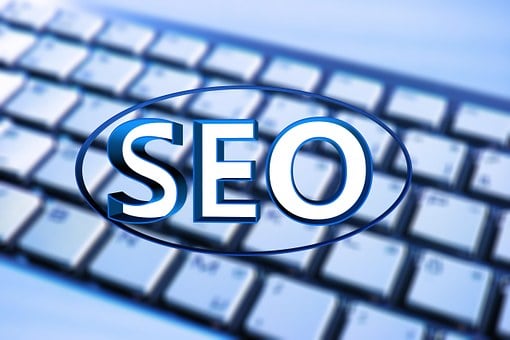
SEO or search engine optimisation marketing is something that every website owner needs to focus on. It stands for “Search Engine Optimisation.” SEO is the process of taking various steps to get your website ranking higher within the organic search engine results.
The main difference between paid advertising and SEO is that one is paid and the other is not. Organic SEO means you’re not paying for the rankings. You don’t pay to be positioned at the top of the search engine rankings. To make it even more simple to understand, SEO is about taking your content and optimising it so it ranks highly within the search engines for various keywords related to your niche or topic.
For instance, when someone is searching for a “Keto diet,” they are likely looking for Keto recipes and other Keto diet related content. Therefore, if you have a website that caters to these people, you are going to want to ensure you have these people flocking to your site. To get your website visibility within the search engines, you need to be ranking as high as possible within them. After all, the majority of people only truly look at the top 3 search engine results and most don’t venture past the first page.
To break it down even further, the majority of the online searches begin with Google. Google is the most dominant player in the space with over 75% of searches starting on Google.
To get an even better understanding of how you can get your content ranking higher within the search engines, you will need to understand how search engines work.
The purpose of this article is to teach you how to effectively get your content ranking higher within the search engines. That way, you can maximise the number of people that see your website and click on it from the search engine results.
The Primary Elements Of SEO: On-Page and Off-Page SEO
On-Page SEO
This is the process of optimising your web pages to get them ranking higher. With on-page SEO, you will be building content on your site to improve your rankings. This can include a variety of things including incorporating the right keywords into your content and publishing content consistently. For proper on-page optimisation, you will need to ensure you have appropriate metatags and that you are targeting the right keywords in your titles and the body of your content.
Off-Page SEO
This is everything that you do to improve the rankings of your site. You will want to do a lot of things off-site including link building, boosting your social media presence, and more. All of these things are classified as off-page SEO because they aren’t directly on your website.
Strategies: Black Hat Versus White Hat
I’ve always been someone that has been about building businesses. Building a business, you need to have a long-term mindset. You can’t be looking for ways to get rich quick or to shortcut the entire process.
The same goes for SEO. If you are looking for quick gains, it’s not something you’re going to get with SEO when done properly. SEO takes a long term approach for the best results. Any quick gains you get with SEO strategies will come from Black Hat Tactics. These are the strategies that are against search engine’s policies and they are typically shunned by search engines. Because of this, you might experience quick gains but quickly find they disappear just as fast.
Instead, you want to implement white hate strategies. These are the strategies that will help you build a much more sustainable business. If you focus on white hat SEO strategies, you’ll find that it’s much more effective and that you are catering more towards your human audience.
Integrating white hat strategies will ensure you give your audience the highest quality content and that you make it much more optimised for their consumption.
A lot of black hat techniques will involve things like duplicating or scraping content. They do this to try to ‘game’ the algorithms by stuffing keywords and trying to get content to rank with it. Google and other search engines will penalise your website if you attempt to do anything like this.